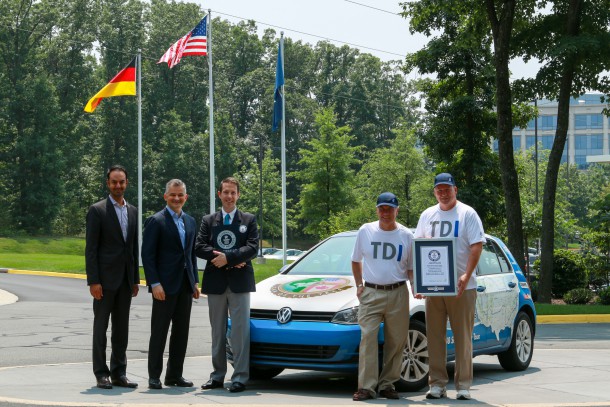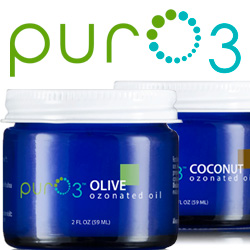How Automotive Payola Works: A Case Study Starring Wayne Gerdes and Volkswagen
Posted on Dec 3, 2021 in Editorials | 1 comment

When a self-described automotive journalist attempts a fuel economy record, you expect his attempt to be objective — or, at least, as objective as such an attempt can be.
However, when an automaker is willing to pay that automotive journalist thousands of dollars for the effort, with payment possibly dependent on achieving the desired record, objectivity falls by the wayside and, along with it, the credibility of someone believed to be a hero in high-fuel-efficiency circles.
Wayne Gerdes, if you aren’t familiar, owns a website called CleanMPG.com. It’s a forum dedicated to those squeezing every bit of fuel efficiency possible from their vehicles — also known as “hypermiling.”
Automotive journalist Gerdes set two records — in 2013 and 2015 — using Volkswagen TDI Clean Diesels. In doing so, the journalist lined his pockets with Volkswagen’s marketing cash.
Hypermiling is a noble pursuit that even I’ve indulged in once, attaining a dismal 39.2 miles per gallon in a first generation, V6-powered Ford Fusion AWD. In comparison, the veteran Gerdes — along with driving partner Bob Winger — clocked an incredible 77.99 mpg over 8,122 miles in a 2013 Volkswagen Passat TDI.
From Volkswagen’s press release announcing the record in 2013:
Wayne Gerdes, founder of cleanmpg.com was the primary driver. Automotive journalist Gerdes has made a career out of hypermiling and has set mileage records in more than 100 vehicles, as well as achieving the record for lowest fuel consumption in the lower 48 U.S. states with a hybrid vehicle at 64.6 mpg. His co-driver was Bob Winger, an electronics engineer long involved in energy and conservation projects.
“We felt we had a good chance of beating the existing record with the Passat TDI,” Gerdes said, “but to smash it by averaging 77.99 mpg is really impressive and a testament to the potential of Volkswagen’s TDI Clean Diesel vehicles. Obviously, we employ some specialized techniques to achieve such figures, but there’s no reason why owners of TDI vehicles shouldn’t be able to achieve great mileage with a few simple pointers.”
Emphasis mine.
The release makes it sound like Gerdes, the founder of CleanMPG, is performing the attempt on his own accord, and is not contracted by Volkswagen to attempt the record. No disclosures are made regarding Gerdes working for Volkswagen to attempt the record.
Additionally, a disclosure on CleanMPG falls very short of the mark, simply mentioning that Volkswagen provided the vehicle for the attempt, but not informing readers that coverage of the attempt is de facto sponsored content. There is no mention of CleanMPG or Gerdes accepting payment for the record attempt.
From CleanMPG:
Sponsors
Volkswagen of America is supplying the 2013 Passat TDI. The US subsidiary was founded in 1955 and is headquartered in Herndon, Virginia. Its parent is Volkswagen AG headquartered in Wolfsburg, Germany. VWoA’s operations in the United States include research and development, parts and vehicle processing, parts distribution centers, sales, marketing and service offices, financial service centers, and its state-of-the-art manufacturing facility in Chattanooga, Tennessee.
Gerdes also provided a mini-review of the Passat, which verges on manufacturer-provided copy, before he and his driving partner headed out on their 48-state record attempt. In that text are links to other Volkswagen reviews.
Again, from CleanMPG:
The Passat like most Volkswagens we have driven lately (Beetle Convertible and Jetta Hybrid come to mind) provides a smooth and comfortable ride with good road feel plus confidence inspiring handling up to and beyond its limits. It accomplishes this seemingly impossible mix of capabilities through independent McPherson struts up front that incorporate rigid lower control arms, coil springs, and an anti-roll bar. Out back, a highly tuned four-link independent layout with an anti-roll bar limits the harshness while providing an almost patented Volkswagen road holding capability.
Two years later, Gerdes and Volkswagen would team up again for another fuel economy attempt, this time in a Volkswagen Golf TDI that achieved 81.17 mpg during a 48-state tour. Again, Gerdes was publicized by Volkswagen as a journalist in its press release announcing the new record. At no time did Volkswagen or Gerdes disclose that he was being paid for the attempt.
However, as we learned today from Wayne Gerdes own admission in a private Facebook group of auto writers, Volkswagen did, in fact, pay Gerdes for at least one of those attempts, effectively tearing down the wall that exists between church and state; in this case, journalism and marketing. Gerdes stated he disclosed his payment up front in his own coverage.
“Yes I did [disclose the payment] right up front for completing the 48-State Guinness World Record. Does any race car driver disclose they are paid by such and such OEM?” Gerdes asked rhetorically.
TTAC asked Gerdes to provide a link to the supposed disclosure claimed, but Gerdes has been unwilling or unable to provide such a disclosure.
“Go ahead and find it. You can start by looking for a sponsor hashtag in tens of social media posts. I know you are to (sic) lazy to find anything of the sort,” he replied
Asked again where TTAC could specifically find the disclosure on his website, where Gerdes posted coverage of his record attempt, he replied, “… find it yourself you lazy hack.”
Gerdes, for his part, doesn’t believe he’s done anything wrong, and that he can be the spokesman of and also report on the merits and flaws of the same vehicle.
“I consider myself a professional driver that proves a vehicle’s capability and promotes those that exceed their capabilities beyond my own lofty expectations for the benefit of society.”
However, when TTAC asked Gerdes if he was an automotive journalist, his reply was quizzical.
“Sometimes I am and sometimes I am not,” he stated. “50 percent of my time I am an auto journalist.”
Volkswagen declined comment when reached.
Gerdes’ income from Volkswagen casts doubt over all involved in automotive journalism — not just Gerdes. To make a claim that you can wear two hats — journalist and marketer — goes against everything it means to be a journalist.
And yet, even with this extra income, it doesn’t sound like Mr. Gerdes is getting much further ahead than the rest of us.





i read about both of these events when they were accomplished. it was clear from the way the cars were decked out with advertisements that vw was involved heavily. the fonts and the font color were straight off the vw website. neither article indicated that the drivers were paid for their services but if you thought about it at the time that would have been obvious. some of the best hypermillers in the world would do this and not get paid? would spend a month of their time and not get paid? who can afford to do that? the way it was promoted on teh vw website and in the non-automotive press – it clearly had the power of a well oiled machine behind it. the most obvious connection is to vw.
now, iirc, both of those articles indicated that vw had provided the car but i dont recall (and will not read all the posts above to find out) if it was ever indicated that vw paid per diem. if it did then you as a reader should understand that as a general rule companies pay per diem to those in their employ.
in summary, i am not surprised that they were paid by vw, and if you had asked me at the time i would have said, yes, i expect they were paid to do both events. having said that i agree that if they were paid it should be disclosed somewhere in the article (likely at the bottom or as part of the main text). that’s responsible journalism whether it be automotive or otherwise. declare all connections and let the reader decide how to interpret.